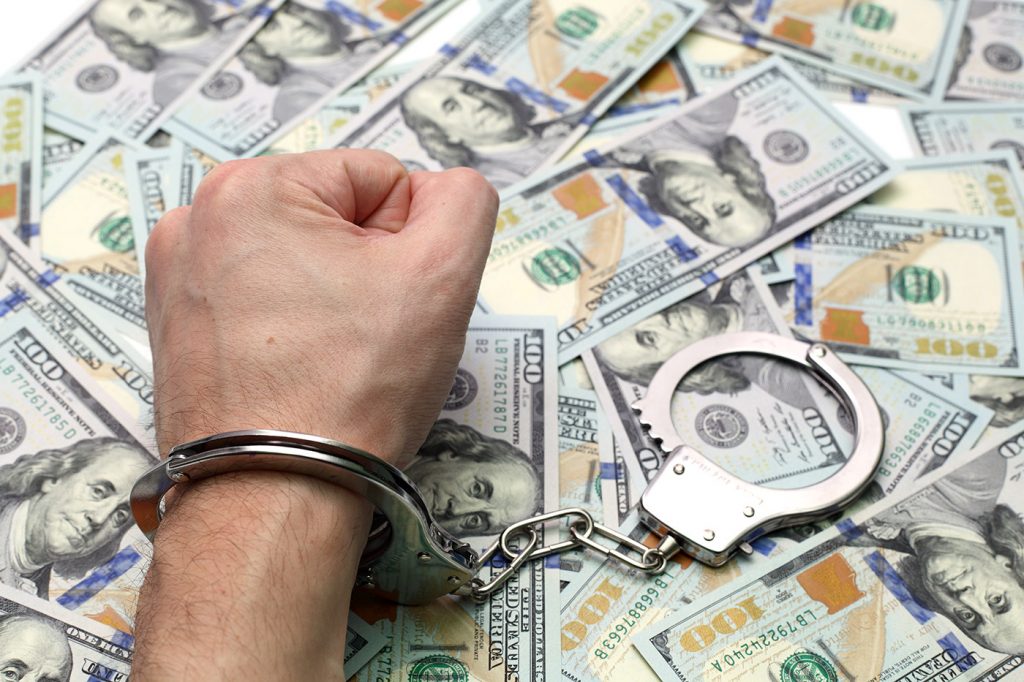Kalief Browder, an African American sixteen year old from the Bronx in New York City, was walking home from a party with his friend when he was stopped by police unexpectedly and charged with an alleged theft in 2010. The accuser, Roberto Bautista, was sitting in a police squad car and identified Browder and his friend as the thieves. The theft was a backpack that was said to contain $700 dollars, a credit card, and an iPod Touch. In his interrogation, with police, Kalief Browder insisted that he had not robbed anyone and that neither the backpack nor its contents would be found in his possession. Browder and his friend were then taken to the precinct where they were processed and taken to central booking. Within the following 48 hours Browder was interrogated and charged with robbery, grand larceny, and assault. At arraignment, bail was set at $3,000 dollars. If Browder’s family used a bondsman the amount would be ten percent plus fees or around $900 dollars for his bail to the bondsman. The bondsman would then post the entire bail amount with the court. The family could not pay $900 resulting in Browder remaining imprisoned at Rikers Island for the next three years.1


Debtors jail in colonial America was used to lock up those who owed money to the government. In today’s society, it translates into the cash bail system. 4 The for-profit bail system in the United States is used to keep those who are accused of breaking the law from harming anybody else or to be sure the accused will appear in court. If the accused is unable to pay the bail at the time of the arraignment, they may use a bondsman or they will remain incarcerated until their trial. For the poor, it is the latter. For Kalief Browder it was the beginning of the end. Only two countries in the whole world have a cash bail system, the United Sates and the Philippines. The cash bail system results in unnecessarily imprisoning citizens who do not pose as a threat to society and who most likely are not a flight risk. No pre-trial information is given to a judge before setting bail and there are no set standards on setting the amount for bail per case.5 Those who are wealthy enough to pay avoid the scarring effect prison has on one’s life. But for those who cannot afford bail, they face violence behind bars, debt, isolation, and at minimum a harsh punishment for those later found innocent, as in Kalief Browder’s case. This has created a two tier system in our judicial process. The first tier are wealthy offenders who can post bail and the second tier is everyone else who cannot afford equal justice or treatment.
Statistics show that 60 percent of people in jail from 2005 to 2015 were in jail awaiting trial. Three fourths of these individuals were accused of nonviolent crimes.6 This is alarming. On a national level, the United States imprisons persons who are essentially living in poverty and who are more susceptible to being involved or accused of a crime. In some instances, the court can grant “release on one’s own recognizance” or ROR. However, this is determined on a state by state standard. An example of this would be New York, the judicial system there would be more willing to grant ROR if the individual has a cellphone, has had a New York address for a year and has a job.7 These may seem like easy standards to meet, but consider those who are homeless, unemployed or cannot afford a cellular service on a regular basis. Their fate rests upon pre-trial bail. The bail money that the defendant does not have, requiring a bondsman, but not always attainable either.

- Johnson, Stephon “‘Time: The Kalief Browder Story’ Shows Failure of Justice System” New York Amsterdam News, March 2, 2017 http://blume.stmarytx.edu:2048/login?url=http://search.ebscohost.com/login.aspx?direct=true&db=a9h&AN=121613807&site=ehost-live&scope=site. ↵
- Schwirtz, Michael, and Michael Winerip “Kalief Browder, Held at Rikers Island for 3 Years Without Trial, Commits Suicide” The New York Times June 08, 2015 https://www.nytimes.com/2015/06/09/nyregion/kalief-browder-held-at-rikers-island-for-3-years-without-trial-commits-suicide.html. ↵
- Schwirtz, Michael, and Michael Winerip “Kalief Browder, Held at Rikers Island for 3 Years Without Trial, Commits Suicide” The New York Times June 08, 2015 https://www.nytimes.com/2015/06/09/nyregion/kalief-browder-held-at-rikers-island-for-3-years-without-trial-commits-suicide.html. ↵
- Steinberg, Robin “Robin Steinberg: What If We Ended the Injustice of Bail?” TED (June 18, 2016.) Https://www.youtube.com/watch?v=3B24RaqA33k . ↵
- Lally, Sean “Can the U.S.Radically Alter Its Cash Bail System?” (October 23, 2017) https://attorneys.us/can-u-s-radically-alter-cash-bail-system/. ↵
- Gunasekera, Yousha “Bail Means Jail: Debtor’s Prison for the Unconvicted.” Progressive 81, no6 (August 2017): 56–59 http://blume.stmarytx.edu:2048/login?url=http://search.ebscohost.com/login.aspx?direct=true&db=a9h&AN=123986116&site=ehost-live&scope=site. ↵
- King, Elizabeth “Inside the Fight to End Cash Bail” Pacific Standard January 08, 2018 https://psmag.com/social-justice/meet-the-reformers-taking-on-alec-to-end-cash-bail. ↵
- “Bail Bond Services for Waco, Texas” Kocian Bail Bonds December 14, 2015 https://www.bailbondskocian.com/. ↵
- “Bail Reform” Official Website – Assemblyman Rob Bonta Representing the 18th California Assembly District (March 29, 2018) Accessed September 21, 2018 https://a18.asmdc.org/article/bail-reform. ↵
- Gonnerman, Jennifer “Before the Law” The New Yorker December 08, 2017 https://www.newyorker.com/magazine/2014/10/06/before-the-law. ↵



123 comments
Christopher Vasquez
What happened to Kalief Browder was awful. It’s a shame that he was treated so poorly. Also, having a bail so high that his family was unable to pay is horrible. His being in jail and accusations of his theft ruined his life so much that he committed suicide; this just shows the injustice that was rampant in the law. Hopefully an injustice like this doesn’t occur again.
Miguel Camarillo-Cohen
This is a very interesting article and it sheds a light on the injustice of those incarcerated and awaiting trial. The author does an excellent job to demonstrate that current day bail system equates the debtor prison of the past. Also highlighting the injustices and consequences of poverty and time spent in jail for the inability to pay for the bail cost.
Jabnel Ibarra
It had occurred to me in the past that much of the American justice system doesn’t exactly seem fair, particularly the bail system. It seems that, like many other aspects of society, the bail system seems to be extremely advantageous to wealthier individuals. This is deeply concerning for an undless variety of reasons, and I’m glad this article points out this injustice.
Crystal Baeza
This article was worth reading and well written. I had no idea how awful the bail system in the United States is. It shows how little we know about what goes on behind closed doors. What happened to Browder was unfortunate and unjust. I agree with the last image, “poverty is not a crime.” No one who is innocent should be stuck behind bars due to their financial status. I hope changes are made soon.
Robert Rees
What’s shocking to me about this article is how long Browder’s case was allowed to sit before a judge finally intervened and how insistent the defender was that Browder should plead guilty. Overall this article is incredibly well written and benefits immensely from the inclusion of this heartbreaking story. The article is incredibly informative and the featured image is also very striking.
Daniel Linstead
Reading this article gave me some knowledge about something that I have never known before. It is interesting to know how many people are actually given an unfair trial due to the fact that they are unable to pay bail. It is hard because people should be given a fair trial no matter if they can or can not pay bail. Justice should be mutual for everyone shouldn’t change just because you have money.
Jose Fernandez
I was shocked I finished reading the article. I cannot believe this can actually happen. It is a total abuse of power and I think it shows a big flaw in the legal system. I feel so sorry for Kalief Browder and his family, this was the most unjust act and the authorities let it happen. They ruined his life and got away with it. The time people spend in jail waiting for trial should be lowered considerably. This should never happen again.
Irene Astran
It is disheartening to see the practice in place that were designed to disenfranchise people of color in the justice system. We target the marginalized by the way their income determines whether they can even post bail from the beginning, regardless of whether they may be guilty or not. Secondly, their income will determine the quality of their representation which also leaves them at risk of being wrongly convicted because they could not afford an attorney with enough experience.
Antoinette Johnson
This shows the unfairness in our legal system. Kalief Browder was an innocent man who did not commit robbery. He was still charged with robbery and larceny. Even though there were no witnesses and evidence he was sentenced to three years in jail. His bond was 3,000 and expense his family had to pay to get him out even though he was innocent. It is sad that processes like this continue to day. Tragically, Kalief committed suicide because of the trauma of being in jail.
Donte Joseph
All around there is definitely infringements on human rights, and I believe that false imprisonments and the issues surrounding it is something that is not talked about enough. I am glad that this article talks about these concerning issues and offers examples such as Kalief Browder, because false imprisonment does ruin lives, and a reasonable compensation should be offered for their time spent.